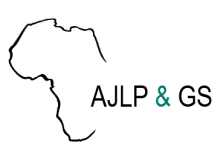Resource information
Context and backgroundAccess to land and productive resources for women is low in many countries especiallyin the developing world where there are less secure property rights in general. .Though there is no clear indication as to which groups should be considered vulnerable in Ethiopia, the groups mentioned under section two are practically considered vulnerable. These groups in Ethiopia include women, orphan children, HIV/AIDS victims, pastoralists, poor peasants, persons with disabilities and the urban and rural poor. Moreover, no proclamation in the country has listed who vulnerable groups are. Only a single proclamation i.e proclamation number 916/2016 tries to highlight the presence of some fabric of society who are considered as vulnerable without further expalanation under its article 34/13/c.The main causes which affect the lives of the women and other vulnerable groups emanate from policy, legal, customary, social and political loopholes in the country.Goal and Objectives:The overall objective of this study was to examine the land administration shortcomings that affect access to land for women in Ethiopia . Methodology:The researchers used a transcendental phenomenological approach to investigate the lived experiences of the women and other vulnerable groups in Ethiopia. By investigating literatures and approaching the participants in a manner where they should express the experiences they have been in and the systematic analysis of policy, legal and social realities with respect access to land. Results:Ethiopia include women, orphan children, HIV/AIDS victims, pastoralists, poor peasants, persons with disabilities and the urban and rural poor are Highly Affected ground. Moreover, no proclamation in the country has listed who vulnerable groups are. Elderly, HIV victims, disabled and unemployed are the groups of vulnerability.Inadequate legal and institutional regime, customary practices, lack of political will and land administration shortcomings are among the causes of vulnerability in Ethiopia. Therefore, addressing such main causes of vulnerability requires nothing beyond alleviating problems related to the legal shortcomings, the inadequacy of legal and land experts, corruption and political reluctance, patriarchal customary practices and bad system of land administration. The government should, therefore, give a serious emphasis in these respects.


